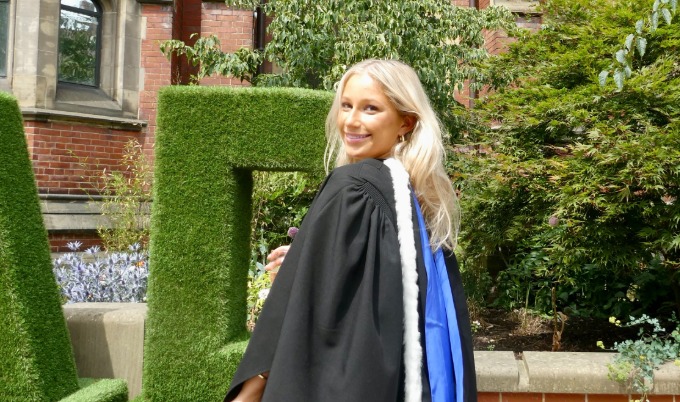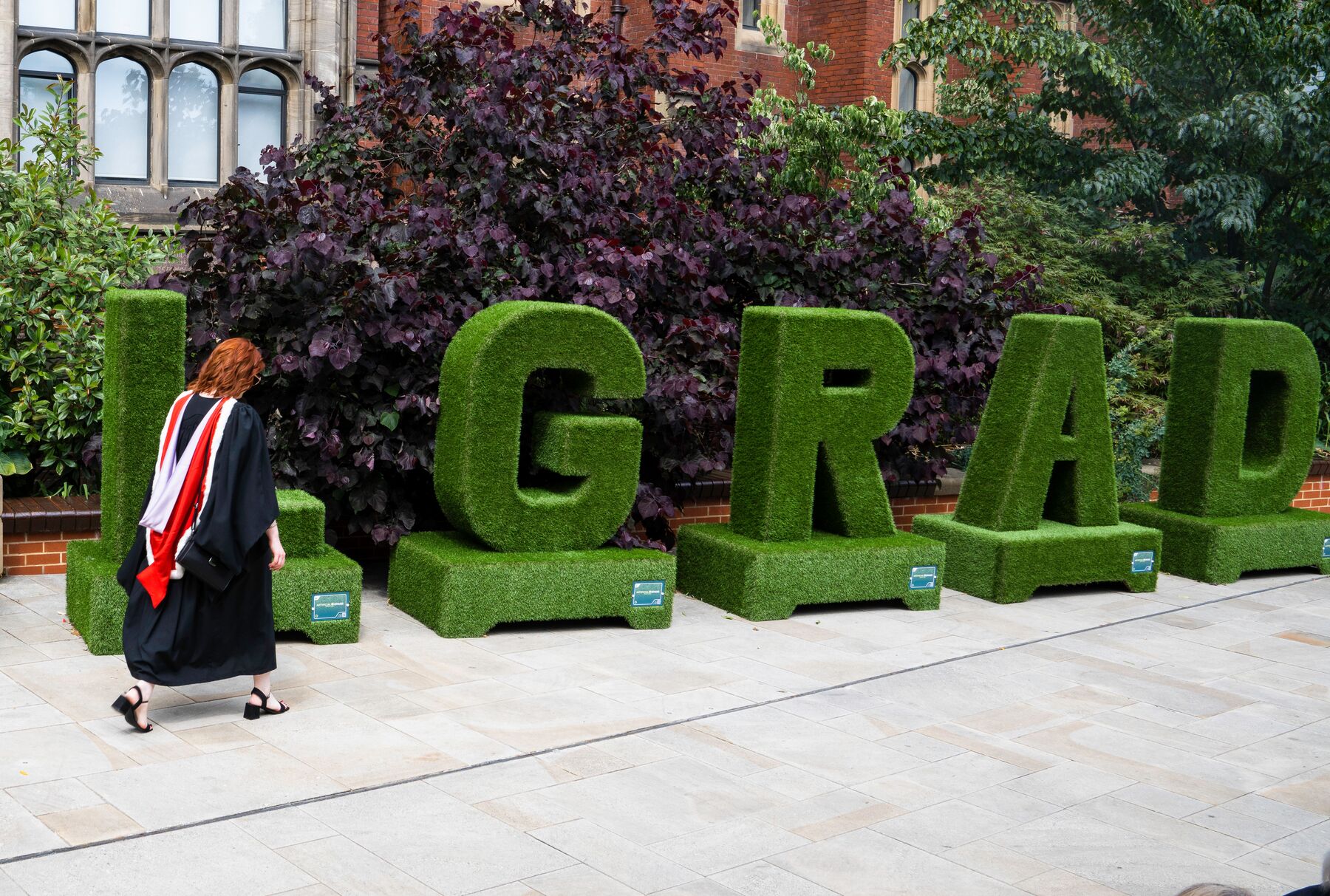Katie Elliott, Assurance Associate, Ernst & Young
Katie explains how her course helped with her career choices
Name: Katie Elliott
Course: BSc Biomedical Sciences (Hons)
Year of graduation: 2025
Current role, organisation and industry: Assurance Associate, Ernst & Young, Accounting & Finance
Why did you choose to study at Newcastle University?
I chose Newcastle University because it offered the perfect balance between being close enough to home to feel comfortable, but far enough away to offer independence. The course content stood out to me, especially the focus on real-world research and hands-on lab experience, which remained a priority even during the uncertainty of COVID restrictions. Newcastle also had a strong support system for personal and academic development, including opportunities like studying abroad and employability awards, which really appealed to me on open days.

What did you enjoy most (or least!) about your course?
What I enjoyed most was the variety of the course. We covered everything from molecular biology and cancer research to immunology and diagnostics. I liked how it taught me how to think critically and analyse data in different scenarios, which translates well into finance. The course was content-heavy at times, especially during exam season, but it taught me how to manage my time effectively and work under pressure.
Tell us a little bit about your career journey. How did you get into what you do now?
The careers team at Newcastle ran a variety of sessions tailored to biomedical science students, which opened my eyes to just how many career paths were available, from research and development to patent law. It was during these sessions that I first became interested in graduate schemes in finance.
I’d always enjoyed problem-solving and working with data, and my year abroad in Illinois, USA, broadened my perspective and ambitions. It made me more confident about working in a professional environment and inspired me to build a successful career beyond the lab. When I started to look at analytical and commercial roles, I found that a career in finance would allow me to apply the same attention to detail and critical thinking that I had developed throughout my degree, making it a good fit for me.
What is the biggest challenge you have faced in your career journey?
I had actually transferred to Newcastle after my first year at another UK university, right in the middle of the COVID-19 pandemic in 2021. Studying online meant there were limited interactions with staff and peers, leaving me feeling disconnected and demotivated. The transition was challenging, but Newcastle made it as smooth as possible. They ran welcome events specifically for transfer students to help us integrate into the second-year cohort. Similarly, when I returned from my year abroad, there were dedicated events to help returning students reconnect with campus life.
How did your course and experiences at Newcastle University prepare you for your current role?
During my time at Newcastle, I completed an internship at the Newcastle Centre for Cancer at the university, funded by the BSCB. With the support of the university and my lecturers, I was able to secure this opportunity, which, although not directly related to my current career, provided me with invaluable transferable skills. I became confident working with data and calculations, adapting quickly to new protocols and technologies, and learning to use complex lab equipment and software on the job.
What other things did you do at University which helped you to get where you are now?
Getting involved in clubs and societies was a great way to make friends, build confidence, and develop transferable skills outside of lectures. Being part of the Biomedical Sciences Society committee allowed me to network with students and staff across the university, collaborate as a team to organise events, and listen to members’ feedback to shape the society to suit everyone’s needs. These experiences helped me develop communication, leadership, and organisational skills, which have been vital for job applications and interviews.
What one piece of advice do you wish someone had given you when you first started?
If I could offer one piece of advice, it would be to trust your gut when choosing which path is right for you, as everyone’s journey to the finish is different. I’d also encourage everyone to make the most of the people around them, like lecturers, researchers, and support staff. They genuinely want to help and are excited to support students who show interest and initiative. Don’t shy away from opportunities just because they don’t perfectly match your current plans or because you’re unsure of your future path. Every experience, whether directly relevant or not, teaches you something, be it communication, problem-solving, or technical skills, which often prove valuable in the most unexpected ways!
What support do you wish you had when you first started? And are there any resources that you would recommend to people?
The careers service was fantastic! They helped with everything from improving my CV and preparing for interviews to providing tailored lists of job opportunities suited to my degree and interests. The study abroad office was also super helpful. Their advice and resources made it easy to choose the right destination, and they ensured the transition to my host university was seamless.
